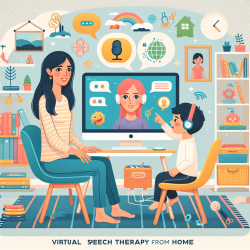The COVID-19 pandemic has significantly altered the daily routines of children worldwide, especially those with attention-deficit/hyperactivity disorder (ADHD). A recent study titled Home participation, support and barriers among children with attention-deficit/hyperactivity disorder before and during the COVID-19 pandemic offers critical insights into how the pandemic has impacted home participation for these children. This blog post will delve into the findings of this study and provide actionable steps for practitioners to improve outcomes for children with ADHD.
Key Findings
The study assessed 55 children with ADHD aged 6–11 years, comparing their home participation, support, and barriers before and during the COVID-19 pandemic. Key findings include:
- Increased participation in computer and video games, socializing with other people, and household chores during the pandemic.
- Higher levels of involvement in activities such as computer and video games, arts and crafts, household chores, and personal care management.
- Reduced cognitive and social demands during the pandemic, making participation easier.
- More readily available resources such as services, supplies, and information during the pandemic.
Actionable Steps for Practitioners
Based on these findings, here are some actionable steps that practitioners can take to improve home participation for children with ADHD:
1. Leverage Increased Screen Time Positively
While increased participation in computer and video games was noted, it's essential to balance this with educational and therapeutic content. Practitioners can recommend apps and games that enhance cognitive skills and provide a structured routine.
2. Encourage Family Involvement
The study found higher levels of involvement in household chores and personal care management. Encourage parents to involve their children in daily routines, which can help improve executive functioning and social skills.
3. Utilize Available Resources
The pandemic has led to more readily available resources. Practitioners should guide families in accessing these resources, including online therapy services, educational materials, and community support programs.
4. Address Cognitive and Social Demands
Reduced cognitive and social demands were reported during the pandemic. Practitioners can work with families to create a supportive home environment that minimizes these demands, such as setting up quiet study areas and establishing clear communication routines.
Encouraging Further Research
While the study provides valuable insights, there is a need for further research to understand the long-term impacts of the COVID-19 pandemic on children with ADHD. Practitioners are encouraged to stay updated with the latest research and incorporate evidence-based practices into their therapeutic interventions.
To read the original research paper, please follow this link: Home participation, support and barriers among children with attention-deficit/hyperactivity disorder before and during the COVID-19 pandemic.










